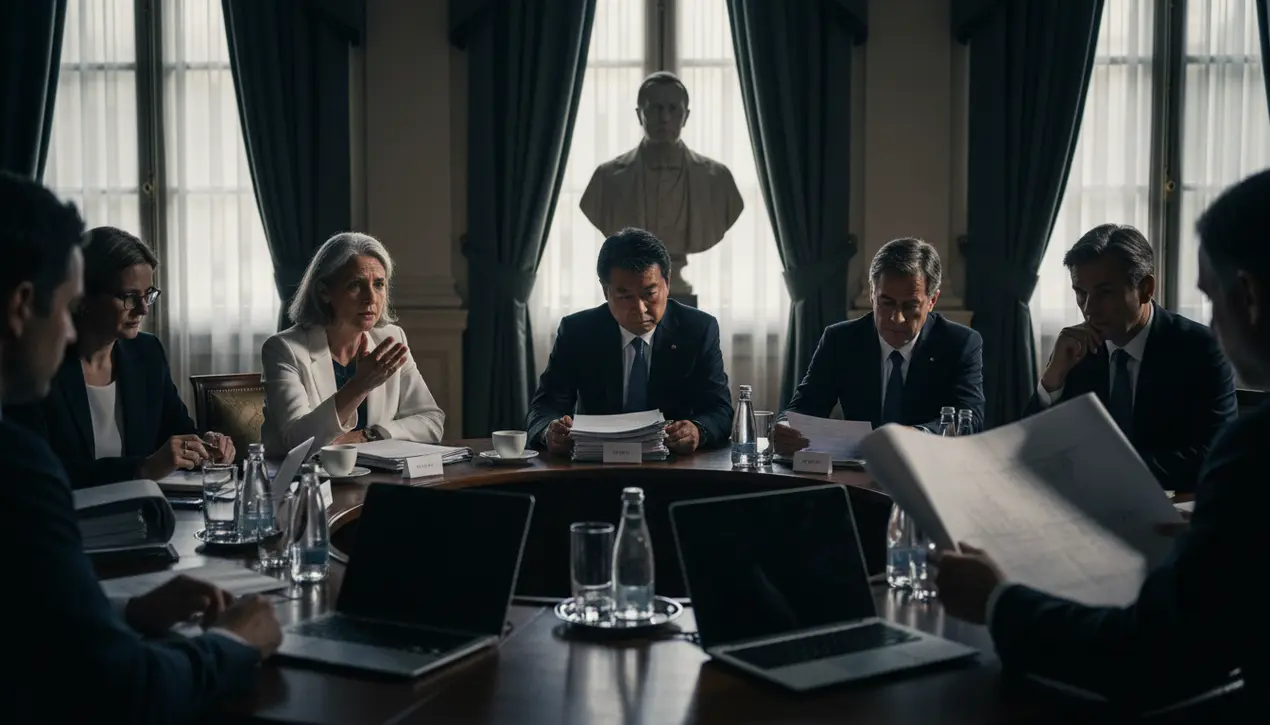
PoliticsdiplomacyPeace Talks and Treaties
Ukraine's allies voice concerns over US plan to end war.
RO
Robert Hayes
4 hours ago7 min read
A palpable tension has settled over the corridors of power in European capitals, Ottawa, and Tokyo, as key allies of Ukraine have voiced measured but significant reservations about a nascent American blueprint to end the brutal conflict with Russia. While publicly acknowledging that the U.S. plan contains certain elements they deem 'essential for a just and lasting peace,' diplomatic sources confirm that leaders from these nations have privately conveyed to Washington that the proposal requires 'additional work,' a diplomatic euphemism for profound concerns over its strategic viability and political consequences.This development is not merely a procedural hiccup; it represents a critical fissure in the Western alliance, echoing historical divisions seen during the Suez Crisis or the lead-up to the Iraq War, where transatlantic unity fractured under the weight of divergent strategic imperatives. The core of the allies' apprehension, according to analysts at the European Council on Foreign Relations, lies in the perceived gap between the plan's theoretical end-state and the grim reality on the ground in Donbas.There is a fear that a premature push for a ceasefire could effectively freeze the current front lines, legitimizing Russia's territorial conquests and creating a simmering, unresolved conflict akin to the post-2008 situation in Georgia, thereby handing Vladimir Putin a strategic victory without guaranteeing Ukraine's long-term security or sovereignty. Furthermore, the plan's silence on the intricate mechanics of post-war security guarantees and the monumental costs of reconstruction—a task estimated to exceed $1 trillion—leaves European partners, who would inevitably bear a significant portion of this burden, deeply uneasy.The German Chancellor's office, in particular, is reportedly emphasizing the need for a robust, NATO-centric security architecture for Ukraine, a point of contention with U. S.proposals that may lean towards more ambiguous bilateral assurances. This diplomatic friction underscores a deeper, more existential debate within the coalition: is the primary objective a swift cessation of hostilities, or is it the establishment of a durable peace that prevents a revanchist Russia from rearming and attacking again in five years? The allies' cautious stance suggests a preference for the latter, reflecting a Churchillian understanding that appeasement, however well-intentioned, often sows the seeds for future, larger conflicts. As this high-stakes diplomatic chess game unfolds, the unity that has been Kyiv's greatest asset now faces its most severe test, with the future of European security hanging in the balance.
#lead focus news
#Ukraine
#US peace plan
#international allies
#diplomatic concerns
#just peace
Stay Informed. Act Smarter.
Get weekly highlights, major headlines, and expert insights — then put your knowledge to work in our live prediction markets.
Related News
Comments
Loading comments...
© 2025 Outpoll Service LTD. All rights reserved.